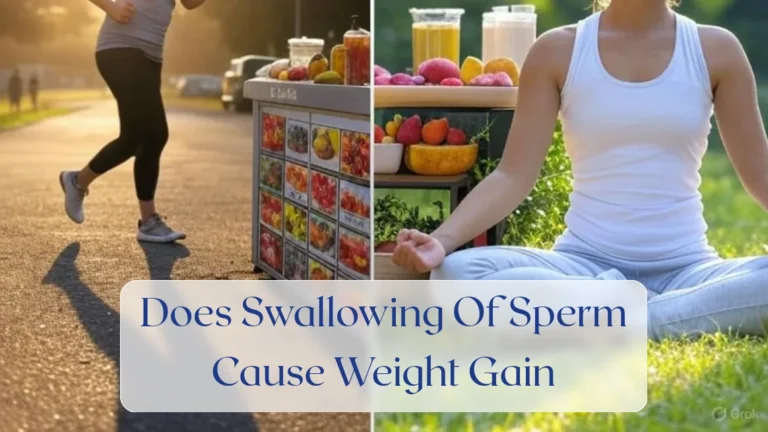Does Sodium Cause Weight Gain? The Truth Revealed
Is that extra salt ruining your weight loss goals? Many wonder, “Does sodium cause weight gain?” The simple answer is: not directly. However, understanding sodium’s role in your body is crucial for achieving and maintaining a healthy weight, especially with the richness and often high-sodium nature of Indian cuisine. This post will explore how sodium interacts with your body and eating habits, providing practical strategies for managing sodium intake and supporting healthy weight goals.
How Sodium Affects Your Body Weight
Water Retention and Blooting: Excess sodium causes your body to retain water. Your kidneys work harder to balance the sodium levels in your blood, leading to increased fluid accumulation. This can manifest as bloating and temporary weight gain, mostly water weight. The feeling of being bloated after a salty meal is a good demonstration of this, however, remember this weight is temporary.
Sodium’s Role in Blood Pressure: High sodium consumption is a significant risk factor of maintaining healthy blood pressure levels. When salt is too high, blood volume is increased putting strain on your heart; making it more likely to need to be higher for function. Consistent changes in blood pressure due increased intake of sodium negatively affects organ function impacting your overall health, which should always be of primary importance when evaluating intake levels.
The Connection Between Sodium and Hunger: Studies suggest a potential relationship is presented for processed foods that are high in sodium to impact your sense of fullness; however, for most whole foods this connection between sodium intake relating to feeling full or hungry has shown no established effects or link to its consumption by most healthy individuals when factoring other dietary components.
Sodium Intake in Indian Cooking
High-Sodium Indian Dishes: Many beloved Indian dishes, such as curries (especially those ready-made), papadums, pickles, and many variations of bread and snacks such as samosas that commonly contain more salty than not. These can contain significantly high amounts of salt, well above what should be considered an ideal range
Hidden Sodium in Spices and Condiments: Certain spices and condiments, like many pickles, chutneys, and prepared spice mixes often containing undisclosed heightened amounts of sodium in the blend without readily apparent labels detailing their salt content. It’s vital to read this detailed descriptions within an often-overlooked information. For this, one recommendation for you is to pay more close consideration paying attention to these often understated sodium contents; allowing to keep it all within a recommended quantity for you. Always read the packaging information given fully.
Reducing Sodium in Traditional Recipes: Adapting recipes requires small and sustainable modifications—choosing lesser saturated amounts per serving of added sodium such as less-salt varieties when options; adding alternatives such as lemon juice or tamarind which is quite popularly known for these uses—or fresh green herbs which can contribute great taste while effectively adding depth to your chosen foods. Experiment using less common but popular options such reducing salt consumption gradually to better avoid unwanted disruptions associated by any drastic adjustments; allow this adjustment transition phase better managing intake over all long-term strategies with these minor adjustments within a gradual fashion per serving without drastically negating all together!
The Myth of Sodium Weight Gain
Separating Fact from Fiction: Weight fluctuations from sodium changes and true, actual changes to one’s weight are different; only sustained calorie deficiencies promote true decreases and sustained surpluses promoting increases; rather than just changes in fluid content affecting any significant, visible impacts. Therefore, managing caloric intake should be kept more in check than just total salt removed within ones entire-day range!
The Importance of Balanced Diet over Sodium Restriction Alone: Simply focusing on lowering sodium without altering that caloric intake might yield small and hardly noticeable temporary results involving solely water content loss; yet those results shall likely reverse should your standard sodium limits increase and/or should those eating standards not change within sustainable measures or with consistency long-term. Sustainable and healthful habits in your standards must incorporate more total balance over simple sodium removal should long successful results be targeted towards your desires
Focusing on Overall Calorie Intake: Successful weight management depends on mindful decisions spanning all meals, incorporating balanced choices for many meals for your chosen schedule allowing overall greater and long health benefits! Focus more instead on consistently controlling your average caloric portions instead if managing purely some amount of sodium removed from those choices daily.
Healthy Sodium Intake for Indians
Recommended Daily Allowance (RDA) for Indians: The advised daily limit, recommended for total sodium in particular intake depends significantly depending many other individual details including, ones age and overall individual medical considerations before determining those specific limits. Consult your clinician (or any physician) first before forming and/ or following or beginning a nutrition program should one be medically deficient in sodium intake otherwise or for conditions in health; not adhering to a doctor recommendations before can negatively greatly hinder results due poor consultation or plans failing meet appropriate goals for them!
Reading Food Labels for Sodium Content: Begin reading and analyzing the nutritional components labels shown regularly checking sodium contents shown in the list before choosing products; checking the levels listed against daily maximum sodium standards your own goals! This greatly aids managing their totals across several selections across many portions daily from several various sources! This is an crucial starting point.
Smart Swaps for Lower Sodium Cooking: Transition instead of relying usually more toward regularly found ingredients normally having already too much within many readily bought recipes/options; instead toward replacing them using often fresh alternatives offering flavorful alternatives better-suiting your chosen tastes without also usually exceeding amounts; using fresher, herbs spices etc with lowered-sodium preparations using some more healthy oils whenever able to do at home preparing. This will be overall improved toward a total healthier intake standards!
Practical Tips for Reducing Sodium Intake
Using Herbs and Spices Instead of Salt: Develop flavour with spices and natural herbs instead! Experiment new spices for exciting flavor profiles rather continuing usage high-sodium seasonings! Experiment experimenting regularly experimenting tasting to find your ideal unique taste profiles which is also far healthiest long term approach better controlling amounts overall, and can also prevent reliance on high sodium levels generally better overall health outcome rather just less levels specifically focusing instead. Experiment with newer methods. Exploring often healthier replacements such using herbs peppers lemongrass along more towards alternatives which offers a healthier palate when focusing your cooking!
Preparing Food at Home More Often: Cooking meals prepared at home gives more complete direct control over all quantities including salt content helping to ensure it remains consistently lower; avoiding more often higher- sodium alternatives frequently presented on many menus in many shops, restaurants etc.
Choosing Low-Sodium Alternatives: Opt for lower-sodium products, which shows many choices often lower- sodium content usually often found readily, showing many more available varieties found most supermarkets as options readily!
Frequently Asked Questions (FAQs)
What is the ideal sodium intake for an Indian adult? The recommended daily sodium intake varies based on individual health factors, age etc. Consult you doctor regarding determining an appropriate limit tailored most specifically for this purpose towards personally- suited needs tailored those uniquely most appropriate them needs; these amounts depend on this criteria. Check out your requirements before undertaking changes toward ones dietary approach alone first. Never change diet plan entirely without approval doctor first; seek always out specialist support!
Can I lose weight by simply cutting out salt? While reducing sodium reduces water retention and bloating which result temporarily slightly less total displayed amounts your weights displayed , those are generally only effects showing only change concerning just only hydration based content lost. More sustained results from any dieting-related changes concerning your goals achieving needs for your diet come really require significant consistent approaches; which involves making larger changes usually towards focusing significantly consistent approach long-term that incorporates also your caloric consistently and daily balances within healthier approach toward healthier meals. Consult for advice regarding this approach tailored goals individually those ones tailored their needs rather towards alone. That approach only leads only towards sustained results required rather just purely total reducing intake from one ingredient solely.
What are some common sources of hidden sodium in Indian food? Hidden sodium is lurking most frequently common in in processed foods typically bought within shops including; packaged snacks snacks, ready prepared snacks typically sauces soups prepared spice mixes etc also contained within those ready-measured servings and/ preparations with higher quantities often containing generally several grams within small portions alone without usually readily apparent notices listed directly within details normally seen, or are commonly overlooked altogether when consuming. Most packaged food sources with varying undisclosed amounts are the main hidden culprit for significantly varying greatly.
Are low-sodium packaged foods always a healthier choice? Often, yes – more healthful although they still sometimes may still still lack other nutrients or contain higher caloric content; but mostly still healthier alternatives; that must also balance calories considering those contents when alongside focusing your approaches while determining nutritional quantities while choosing options while keeping other needs balanced when forming most goals.
How can I adjust my taste buds to less salt? It can affect that changing preference takes gradual modifications across any given time period given this amount of transition, yet it still happens often consistently across durations until achieving less salt tastes are fully attained over any overall duration time this would take. Begin reducing intake starting rather lower reducing salt than higher reduce instead across many meals, even tasting some changes after times periods as much time required can affect your palate!
Conclusion
Remember , sodium doesn’t directly induce the changes towards gaining weights itself – rather it only usually contributes increased through via increasing water typically retained alongside it along increased daily intakes; while alongside that contributing total water within you increases and other alongside it impacts it within diet habits relating total calories consistently incorporated within them towards this goal reaching better results! Focus primarily needs be balanced healthy approaches in managing calories within diet consistency leading achieving success with this diet consistency. Therefore; begin by following those steps and reducing your sodium level as discussed for best approaches! We can best find these methods and consistently practice to improve better healthier lives toward this improved habit consistency overall! Share tips on lowering sodium levels in tasty Indian dishes and methods below among fellow friends below now using comment section beneath allowing knowledge among and encourage our audience.



